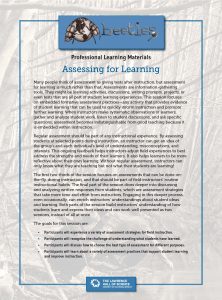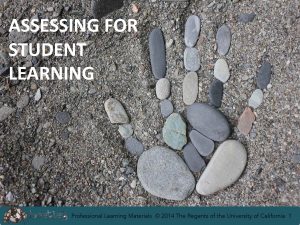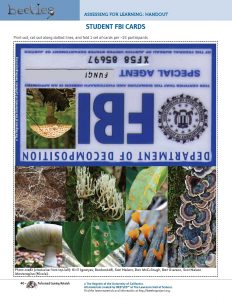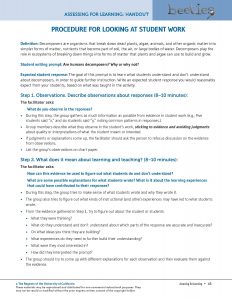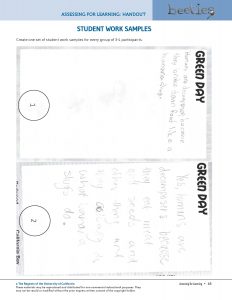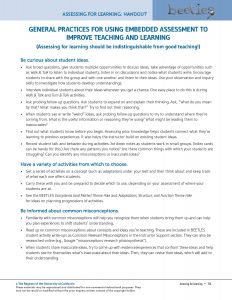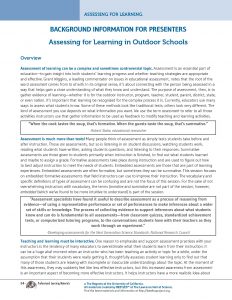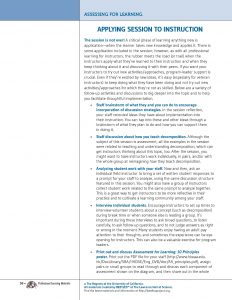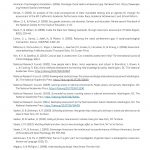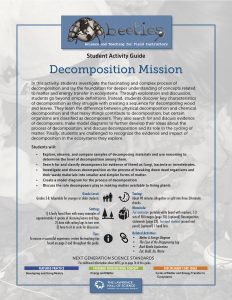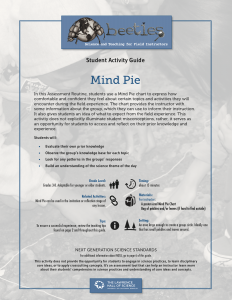How do we know what students are learning?
Many people think of assessment as giving tests after instruction, but assessment for learning is much richer than that. Assessments are information-gathering tools. They might be learning activities, discussions, writing prompts, projects, or even tests that are all part of student learning experiences. This session focuses on embedded formative assessment practices—any activity that provides evidence of student learning that can be used to quickly inform instruction and promote further learning. When instructors make systematic observations of learners, gather and analyze student work, listen to student discussions, and ask specific questions, assessment becomes indistinguishable from good teaching because it is embedded within instruction.
Regular assessment should be part of any instructional experience. By assessing students at selected points during instruction, an instructor can get an idea of the group’s and each individual’s level of understanding, misconceptions, and interests. This ongoing feedback helps instructors adjust field experiences to best address the strengths and needs of their learners. It also helps learners to be more reflective about their own learning. Without regular assessment, instructors can only know what they are teaching but not what their students are learning!
The first two-thirds of the session focuses on assessments that can be done on-the-fly, during instruction, and that should be part of field instructors’ routine instructional habits. The final part of the session dives deeper into discussing and analyzing written responses from students, which are assessment strategies that take more time and effort from instructors. Engaging in this deeper process, even occasionally, can enrich instructors’ understandings about student ideas and learning. Both parts of the session build instructors’ understanding of how students learn and express their ideas and can work well presented as two sessions, instead of all at once.
Goals for this session are:
- Participants will experience a variety of assessment strategies for field instruction.
- Participants will recognize the challenge of understanding what students have learned.
- Participants will discuss how to choose the best type of assessment for different purposes.
- Participants will learn about a variety of assessment practices that support student learning and improve instruction.

